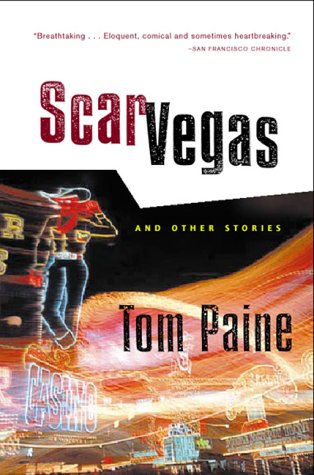Tom Paine first came to my attention over a decade ago when his story "General Markman's Last Stand" appeared in Story. It was one of my favorites to have read in that magazine over the course of two or three years of subscribing. However, somehow, I failed to ever get around to reading his book. A few years ago, I spotted it in the library and was reminded. And now, finally, I have read it. The "General" didn't impress quite as much as it did a decade ago, but in part that's probably because I knew where it was going; in part, it was likely because my tastes have changed. The story--still good--seemed a bit too wacky and out there to floor me so much now.
In fact, the selling point for Paine's collection of stories is perhaps also a drawback. This collection is all over the place. It's hard to know how Paine does it. We're with Caribbeans in one piece, Arabs another, and Romanians in yet another. His work reminds me a bit of the all the energy and craziness that sometimes goes into the work of some of the postmodernists like Barth and Coover--and much of the same the excess. Paine adopts the slangy voice of drugged-up anarchists in "The Spoon Children," a story worth reading for that voice alone; becomes a hipster in "Scar Vegas"; and takes on the absurdist drama of totalitarianism ala Kundera in Ceausescu's Cat. He tells war stories ("The Battle of Khafji") and work/spiritual (spirit) stories ("The Hotel on Monkey Forest"). Each of these is interesting in its own right.
But my favorite in the collection is at this point the opening story, "Will You Say Something, Monsier Eliot?" It starts slow, but like many a slow-going story, it builds to a grand crescendo. The story of a shipwrecked boater picked up by Haitian refugees, the work becomes something terrifying and sad in one ungraceful swoop. Never trust an American.
Friday, November 13, 2009
Subscribe to:
Post Comments (Atom)







No comments:
Post a Comment